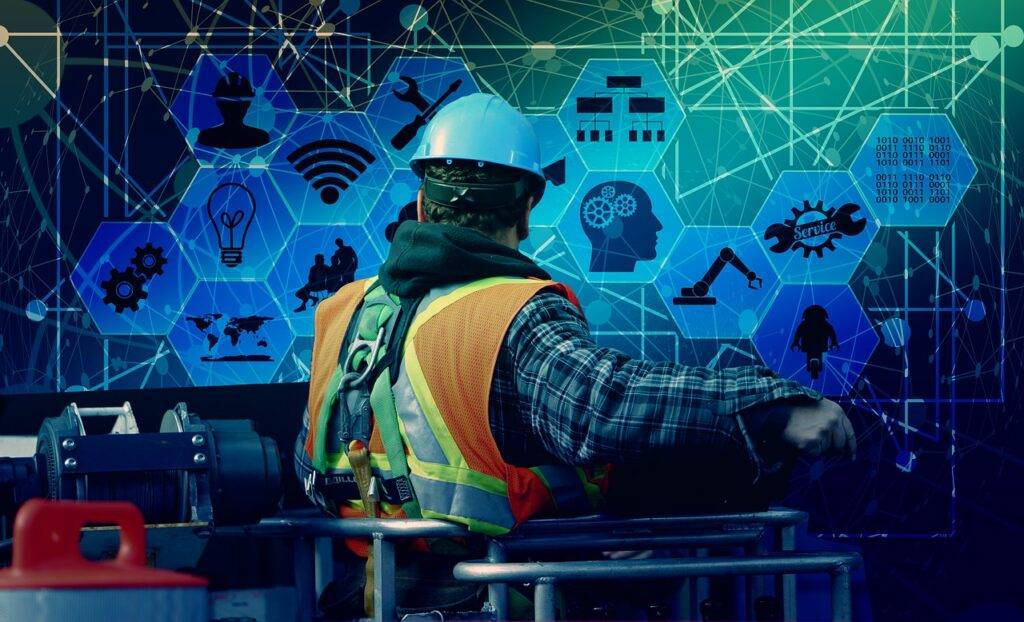The advent of Artificial Intelligence AI has instigated a deep-seated fear amongst the populace regarding the imminent loss of their employment opportunities. However, my personal conviction differs from this apprehension. Rather than facing the possibility of being rendered jobless, we must come to terms with the probability of losing our well-defined job descriptions. The concept of specialized work is becoming outdated, and we are moving towards a more generalized approach.
Table of Contents
However, it is also important to note that the AI impact on employment is complex and varies depending on the industry and job type. While some jobs may be replaced by AI, new jobs will also be created in areas such as AI development, maintenance, and support.
The idea of specialized work becoming outdated is a possibility, but it is important to note that some industries will still require specialized skills and knowledge. However, it is also true that AI can augment the capabilities of workers and enable them to perform a wider range of tasks.
With the introduction of AI, an individual can undertake any task in any business role. The manpower can be dynamically deployed, and the workload can be adjusted with utmost ease in accordance with the constantly changing demands.

AI Impact on Employment
AI Impact on Employment – Outsourcing Companies
The offshore outsourcing industry is also poised to undergo a significant transformation. Previously, we resorted to the human Virtual Assistant (VA) available in a foreign country. However, in the not-too-distant future, we may have to entrust our workload to our very own AI Assistant (AIA). In the near future, we may even find ourselves uttering the phrase, “I will have my AIA contact your AIA to schedule a meeting next week.”
In order to remain relevant, it is essential for all of us to embrace artificial intelligence and learn how to wield it proficiently in our professional and business pursuits. However, it is important for individuals to develop special skills that complement AI and enable them to work alongside it effectively. This includes skills such as critical thinking, problem-solving, and creativity, which are not easily replicated by artificial intelligence.

“AI may replace certain jobs, but it’s the human ingenuity that will create new ones.”
AI Impact on Employment – Example 1 – Data Driven Marketing Campaign
Let’s say that you work in marketing for a company and one of your responsibilities is to analyze customer data to identify trends and insights that can inform marketing campaigns. This can be a time-consuming task, as there may be large amounts of data to sift through and analyze.
One way to leverage AI in this scenario is to use machine learning algorithms to automate the data analysis process. For example, you could use a tool like Google Analytics or IBM Watson Analytics to automatically identify patterns and correlations in your customer data. This can save you time and enable you to quickly identify insights that you may not have noticed otherwise.
Once you have identified these insights, you can use them to inform your marketing campaigns and make data-driven decisions. This can lead to more effective campaigns, increased ROI, and better overall performance for your team and your company.
By leveraging AI in this way, you are not replacing your job or your skills, but rather using technology to augment your capabilities and enable you to work more efficiently and effectively.
AI Impact on Employment – Example 2 – Chatbot Solves Simple Issue and Escalates Tough Issues to Human
Let’s look at another example of how someone can leverage AI in their work:
Let’s say you work in customer service for a large e-commerce company, and your role involves responding to customer inquiries and resolving issues. With the increasing volume of customer inquiries, it can be challenging to keep up with the demand and ensure that all customers receive timely and accurate responses.
One way to leverage AI in this scenario is to use a chatbot to automate some of the customer inquiries. A chatbot is an AI-powered tool that can interact with customers and provide basic responses to common questions. By using a chatbot, you can free up time to focus on more complex customer inquiries that require human intervention.
To get started with a chatbot, you can use a platform like Dialogflow or Microsoft Bot Framework to build a customized chatbot for your company. You can train the chatbot to recognize and respond to common customer inquiries, and set up triggers to escalate issues to a human representative when necessary.
By leveraging AI in this way, you can improve the efficiency of your customer service team and ensure that customers receive timely and accurate responses to their inquiries. This can lead to improved customer satisfaction, increased loyalty, and better overall performance for your company.
Final Thoughts
In conclusion, AI has the potential to transform the way we work and live in significant ways. While there are concerns about the AI impact on employment and the workforce, there are also opportunities to leverage AI to augment our capabilities and work more efficiently and effectively.
By embracing AI and learning how to wield it proficiently, we can position ourselves for success in an increasingly AI-driven world. This may involve seeking out educational opportunities, identifying areas in our work processes where AI can be used to increase efficiency, and approaching the integration of AI into our work with a growth mindset.
At the same time, it is important to be aware of the potential biases and ethical considerations involved in the use of AI. We should work towards ensuring that AI is used in a responsible and ethical manner, and prioritize the well-being and job security of workers both locally and globally.
Overall, the key to success in an AI-driven world is to remain adaptable and open to new opportunities and ways of working. By staying informed and proactive, we can ensure that we are able to navigate the changing landscape of work and technology, and continue to thrive in our professional and personal pursuits.


